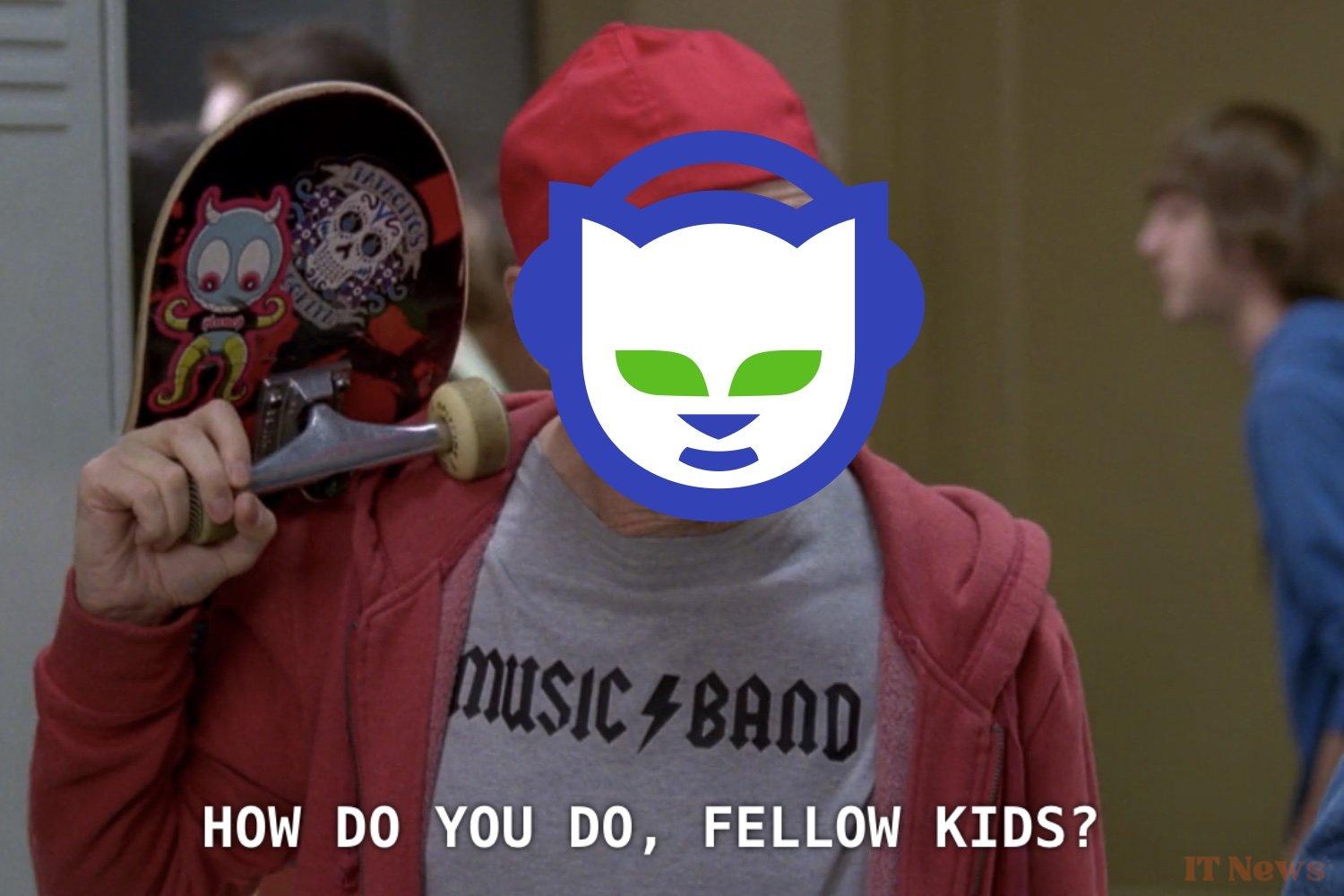For better or for worse, Napster accelerated the transition to the all-digital model that has become so prevalent in the music world (and beyond) today. By 1999, the P2P service had 89 million users sharing and downloading MP3s, many of which were pirated. A lawsuit from Metallica and the RIAA (the US recording industry's union) later, the service shut down. its doors in 2021 and then went bankrupt the following year.
25 years of failed reinventions
Since then, the brand has changed owners regularly, each trying to ride the wave of the moment without realizing that it is already outdated. Roxio transformed it into a rival to iTunes in 2003. Three years later, Napster returned to free… on a Flash site. The American cardboard pusher Best Buy took over the business in 2008 to better resell it to Rhapsody, which turned it into a streaming service.
In 2022, two blockchain and Web3 companies, Hivemind and Algorand, took over Napster, just as these technologies were entering a trough (they still haven't emerged from it today). And now, Napster has been acquired, once again, by Infinite Reality. Despite these comings and goings, the brand is still worth something: $207 million, the amount of the check.
The new owner is a media, e-commerce, and marketing company specializing in 3D and "AI experiences." Napster's new model is to make it a "social music platform" that prioritizes fan engagement over passive listening.
And all of this will be realized through "3D virtual spaces in the image of the artists," John Acunto, CEO of Infinite, told CNBC. "Fans will be able to attend virtual concerts, participate in collective listening parties and other immersive and communal experiences," he adds in what looks a lot like a metaverse. A technology that Meta, its main promoter, is on the verge of abandoning! But who knows, maybe with a little luck...
Undeterred by the task, John Acunto says he is convinced that the relationship between artists and fans has evolved. "Fans are looking for hyper-personalized and intimate access to their favorite artists, while artists seek innovative ways to strengthen this connection and develop new sources of revenue. A discourse that is also that of some record companies, who would like to charge fans (the "superfans") more for direct access to their favorite artists. Will Napster succeed in do more in this market?
Source: CNBC



0 Comments